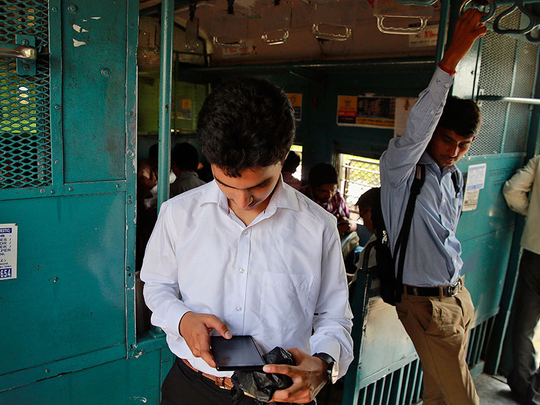
It was certainly a defining moment of ‘freedom’ for all new age Indians as the news of the country’s apex court quashing Section 66A of the Information and Technology Act spread like a wildfire over the social media.
There was much jubilation and spontaneous celebrations as the court’s order came as a major relief for millions in the country who needed to be politically correct every time they sought to express their opinions about anything remotely connected to politics and politicians. The fear of being jailed for having offended the ruling class lurked.
Section 66A punished “offensive messages” that are sent “by means of a computer resource or a communication device”. It also wouldn’t countenance anything deemed to be “for the purpose of causing annoyance”.
Words written or spoken, as we know, can annoy anyone without being coarse or depraved. What may be indecent for me could be very common usage for many. The interpretation was leaving room for anonymous justifications tending towards the age-old debate on one man’s freedom fighter being another man’s terrorist. India’s political class though loved it. The Indian National Congress enacted Section 66A of the IT Act with rare zeal, believing it would be able to downplay the opinion people had of their corrupt ten-year rule. The BJP, which embraced social media platforms to win the popular vote, inherited the legal provision and defended it with equal flair, realising that suppressing voices of dissent and decimation of information would be key to taking forward its right wing agenda.
From Narendra Modi to Azam Khan, be it Karti Chidambaram or Mamata Banerjee, politicians of all affiliations have misused it as a tool to stifle genuine voices of disenchantment, at times classifying dissenting opinion as acts of terror or worse, murder threats.
Blurred lines
This provision of the IT Act was invoked to arrest two college girls in Mumbai after the death of Bal Thackeray, a businessman in Tamil Nadu, a Class XI student in Uttar Pradesh and a professor in West Bengal. The common ‘violation’ in all these cases was that people had dared to write against certain politicians. Their predicament symbolised the intent of the political class to curb candid public opinion that was not to their liking.
These incidents highlighted the manner in which the legal provision was being misused. Though freedom of speech and expression are guaranteed by the constitution of India, subject to reasonable restrictions, the restrictions imposed with regard to freedom of online speech were draconian. An attempt was being made to create a fear psychosis in the minds of people willing to express their beliefs bluntly.
However, for a country that proudly advertises itself as the world’s largest democracy, it was important to not just counter this threat to free expression but to do away with it in its entirety. The section as it stood was so blurred that law enforcement authorities could interpret even opinions as reason enough to jail citizens. The elected government’s stubborn defence of this flawed clause is indicative of the mindset and the belief of those in power, that they have the right to control the beliefs and opinion of the people at large.
Politicians have realised that the changing demographics of the country have ensured that a failure to deliver on slogans is no more unacceptable to the ordinary voters. Unlike in the past, when people voted for individuals or parties based on family beliefs or caste considerations, the new age voters are convinced only by the doers and don’t hesitate to turn down those who to fail to keep promises.
Social media is a powerful tool in this respect. Unlike the past, when people were dependent on traditional media for news, which often was restricted to suit the needs of the people in power, millions now have the power to directly influence debates on government inaction or injustice in audiences numbering millions within seconds, creating a large pressure group from across the country.
Social media has garnered a huge number of votaries in India and is an ever growing platform on which public opinion is being regularly expressed. It is estimated that India will have more Facebook users than the United States by 2017. The nation has a significant number of Twitter users as well. Both these platforms have played a vital role in forming public opinion on a range of issues. In the coming days, social media may well become the primary source of information for society.
The apex court rightly pointed out that Section 66A directly affected the constitutionally guaranteed right to freedom of speech and expression. The court, given its authority to uphold the constitution, also made a clear distinction between discussion and advocacy of a cause. However unsavoury it might be to our political rulers, it would be fair to say that with this ruling, India, which many believe is still a true democracy in the making, has taken a bold step towards the maturing of egalitarian principles.
— Archisman Dinda is based in Kolkata, India.










